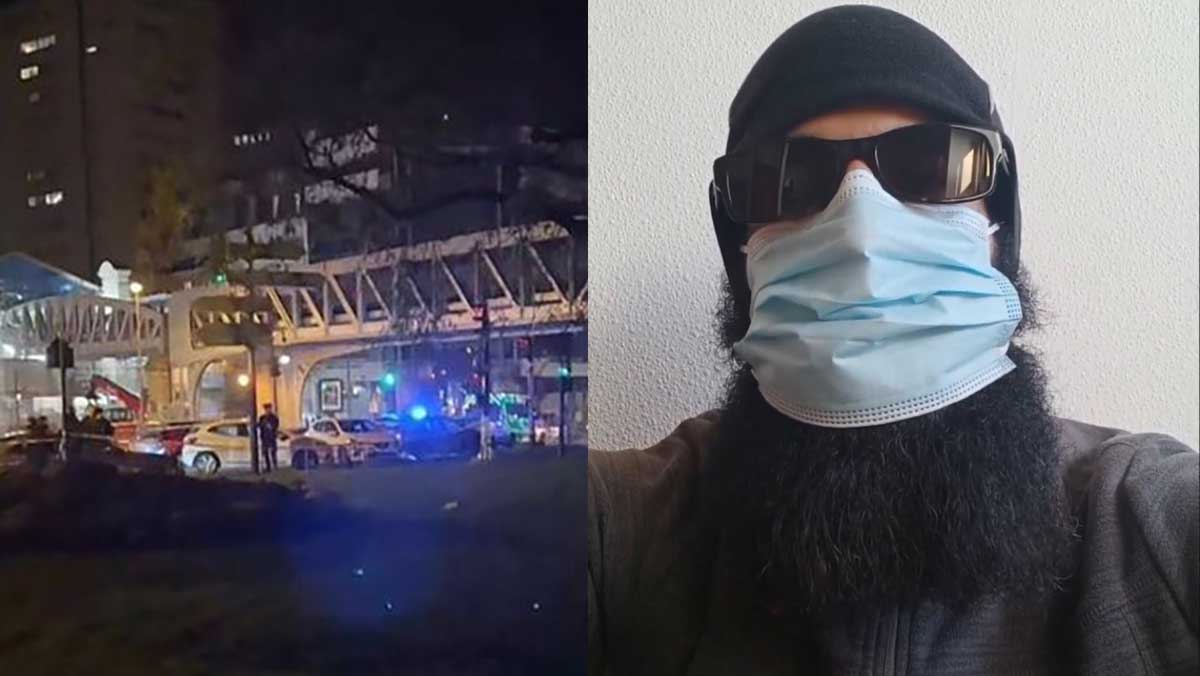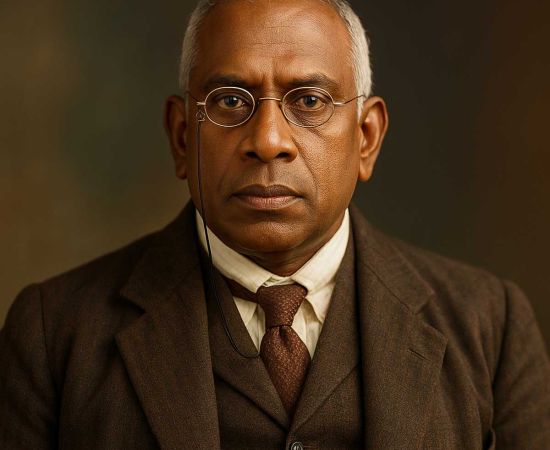MORE COVERAGE
Twitter Coverage
Satyaagrah
Written on
Satyaagrah
Written on
Satyaagrah
Written on
Satyaagrah
Written on
Satyaagrah
Written on
JOIN SATYAAGRAH SOCIAL MEDIA
"I was upset… you know": Islamist Miyandoab shouting ‘Allahu Akbar’ kills 1, injures 2 others in a knife attack near Eiffel Tower, had spent 4 years in prison earlier for planning a violent attack, was under surveillance and receiving psychiatric therapy

In a horrifying incident that unfolded on Saturday (December 2), a man, loudly proclaiming "Allahu Akbar," carried out a fatal knife attack near the Eiffel Tower in central Paris. The consequences were tragic, with a German tourist losing their life, and two others left injured in the wake of the assailant's senseless violence. Disturbingly, the assailant rationalized his actions by claiming to be 'upset' over the deaths of Muslims in Afghanistan and Palestine, a justification that falls woefully short of mitigating the gravity of the crime.
|
The use of a public space near the Eiffel Tower as the backdrop for this brutal attack amplifies the shocking nature of the incident. The Eiffel Tower, an iconic symbol of love and unity, now stands witness to an act of terror that challenges the very principles it represents.
The assailant's declaration of being 'upset' over international events in Afghanistan and Palestine is an unacceptable attempt to rationalize an act of extreme violence. While global conflicts undoubtedly evoke strong emotions, resorting to murder as a means of expressing one's grievances is not only morally reprehensible but also criminal.
It is crucial to emphasize that personal distress, no matter how profound, cannot serve as a valid excuse for taking innocent lives. The tragic death of the German tourist underscores the irreparable loss that results from such acts of brutality.
France's Interior Minister, Gerald Darmanin, swiftly confirmed the attack and the subsequent arrest of the assailant by the police. This quick response by law enforcement is commendable, signaling a commitment to ensuring that those responsible for such atrocities are swiftly brought to justice.
|
Minister Darmanin's condemnation of the attack resonates with the sentiments of a shocked nation. However, it is now imperative to delve into the deeper roots of this incident, addressing not only the individual responsible but also the societal factors that may contribute to the radicalization of individuals with such violent inclinations.
The assailant's claim of being upset over global events highlights the challenging intersection between personal grievances and the potential for radicalization. As societies grapple with complex geopolitical issues, it becomes increasingly important to foster open dialogue and peaceful avenues for expressing dissent.
The tragedy near the Eiffel Tower serves as a stark reminder of the fragility of social harmony and the need for vigilant efforts to prevent the radicalization of individuals who may be susceptible to resorting to violence as a misguided means of expressing their discontent.
|
In the aftermath of the harrowing knife attack near the Quai de Grenelle in Paris, France's Interior Minister Gerald Darmanin commended the courageous actions of the police officers involved. The assailant, in a brazen assault on passers-by, left one person dead and another injured. Minister Darmanin, via a social media post, urged the public to avoid the affected area as the police swiftly responded to the crisis.
The timely intervention of the Paris Fire Brigade and law enforcement was instrumental in minimizing the casualties resulting from the assailant's rampage. Minister Darmanin's acknowledgment of the police's courageous efforts underscores the importance of quick and decisive action in the face of such threats.
The Minister's plea for the public to avoid the area served not only as a cautionary measure but also as a testament to the gravity of the situation. It reflects the imperative need for public cooperation during times of crisis to facilitate the work of first responders.
In a subsequent media briefing, Minister Darmanin provided a chilling account of the attack, revealing that it transpired around 7 PM GMT. The assailant initially targeted a couple with a knife, setting off a chain of events that would scar the evening. The ensuing police pursuit unfolded in a dramatic fashion, with the attacker resorting to a hammer to assault two additional individuals before the 25-year-old French national was finally apprehended.
|
|
The use of a Taser stun gun by the police during the arrest underscores the level of threat the assailant posed and the necessity for law enforcement to employ decisive measures to neutralize the danger. It is a stark reminder of the challenges faced by the police in maintaining public safety, particularly in the midst of spontaneous and violent incidents.
The events surrounding the knife attack expose the vulnerabilities inherent in public spaces, even in iconic and heavily frequented areas like Quai de Grenelle. As societies navigate the delicate balance between preserving individual freedoms and ensuring public safety, incidents like these underscore the need for comprehensive security measures and heightened public awareness.
The assailant's progression from a knife attack to wielding a hammer raises questions about the evolving nature of such incidents. Understanding these patterns is crucial for law enforcement agencies to adapt and formulate effective strategies to prevent and respond to similar threats in the future.
|
Interior Minister Gerald Darmanin revealed disturbing details about the assailant responsible for the recent knife attack near the Quai de Grenelle in Paris. According to Darmanin, the assailant brazenly shouted "Allahu Akbar" slogans during the attack and informed the police that his motivation was rooted in being 'upset' over the substantial loss of Muslim lives in Afghanistan and Palestine. The ideological nature of the attack raises concerns about potential links to extremist ideologies.
The assailant's use of religious slogans and the explicit connection of his actions to perceived injustices in Afghanistan and Palestine paint a troubling picture. The assailant's rationale, as conveyed to the police, emphasizes an ideological motivation that transcends personal grievances. This raises questions about the extent to which global conflicts can be manipulated by individuals to justify acts of terror on a broader scale.
Minister Darmanin's revelation brings attention to the urgent need to address the potential radicalization of individuals driven by ideological grievances, highlighting a growing concern for national security.
In response to the alarming nature of the attack, the anti-terrorism prosecutor’s office has assumed control of the investigation. This development signals a recognition of the potential terrorist nature of the incident and underscores the necessity for a specialized inquiry. The focus will likely be on uncovering the assailant's affiliations, potential radicalization, and any connections to larger extremist networks.
|
The involvement of anti-terrorism authorities underscores the severity of the situation, as France confronts the harsh reality of ideologically fueled violence within its borders.
French President Emmanuel Macron swiftly reacted to the deadly attack, offering condolences to the victims. The president's statement reflects the nation's collective sorrow and condemnation of what is now being officially labeled a terrorist attack. Macron's response also highlights the need for a united front against terrorism, emphasizing the gravity of the threat posed by individuals who exploit global conflicts for their ideological agenda.
French President Emmanuel Macron took to social media platform X to express his profound condolences in the aftermath of the terrorist attack near the Quai de Grenelle in Paris. The attack claimed the life of a German national and left others injured. President Macron's statement conveyed his heartfelt sympathy to the family and loved ones of the deceased and expressed concern for those currently receiving medical care.
"I send all my condolences to the family and loved ones of the German national who died this evening during the terrorist attack in Paris and think of the people currently injured and in care," expressed President Macron, acknowledging the immediate human impact of the attack. The emphasis on offering condolences to the family of the deceased emphasizes the personal toll that terrorism takes and the profound loss experienced by those directly affected.
|
Macron's gratitude was then extended to the emergency forces, highlighting their pivotal role in swiftly apprehending a suspect. "My most sincere thanks to the emergency forces who made it possible to quickly arrest a suspect," underscores the importance of a rapid and coordinated response in preventing further harm and bringing those responsible to justice.
President Macron further asserted that the national anti-terrorism prosecutor’s office would take the lead in investigating the matter, stating, "The national anti-terrorism prosecutor’s office will be responsible for shedding light on this matter so that justice can be done in the name of the French people." This declaration signifies the seriousness with which the French government views the incident, entrusting a specialized entity to uncover the motives and hold the perpetrator accountable.
Macron's pledge for justice resonates with a nation seeking answers and closure in the face of a heinous act. The involvement of the anti-terrorism prosecutor's office reinforces the commitment to a thorough and impartial investigation that aims to bring clarity to the circumstances surrounding the attack.
As France mourns the loss and grapples with the repercussions of the terrorist act, President Macron's statement serves as a call for unity, resilience, and an unwavering pursuit of justice in the name of the French people. The nation awaits the outcomes of the investigation, trusting in the diligence of authorities to address the root causes and prevent such tragedies in the future.
|
|
Prime Minister Élisabeth Borne's response to the evening's attack in Paris reflects the nation's collective concern and determination in the face of terror. "Following this evening’s attack in Paris, my thoughts are with the victim, the injured and their loved ones," expressed Borne on social media platform X. Her statement emphasizes the immediate human impact of the attack, with a focus on expressing empathy for those directly affected.
Borne's acknowledgment of the law enforcement and emergency services underscores their crucial role in responding to the incident. "I salute the courage and professionalism of our law enforcement and our mobilized emergency services," recognizes the dedication and bravery exhibited by those on the front lines. This commendation serves to boost the morale of these vital forces and highlights their unwavering commitment to public safety.
In declaring, "We will not give in to terrorism. Never," Prime Minister Borne unequivocally affirms the nation's stance against terrorism. This resolute message echoes the sentiments of a government and its people who refuse to succumb to fear and violence. Borne's statement serves as both a reassurance to the public and a stern warning to those who seek to instill terror.
Reports surrounding the attacker reveal a troubling background that adds a layer of complexity to the incident. The assailant had spent four years in prison for planning a violent attack, marking a significant red flag regarding his potential for future violence. Released from jail in 2020, he was under surveillance and receiving psychiatric therapy, pointing to a history of instability and potential radicalization.
|
The revelation that the assailant was born in the Paris suburb of Neuilly-Sur-Seine adds a dimension of proximity to the incident, raising questions about the potential influence of local factors in his radicalization. The attacker's trajectory from imprisonment to surveillance and therapy, and finally to perpetrating a terrorist act, underscores the challenges authorities face in monitoring and preventing the radicalization of individuals with a history of violence.
The assailant responsible for the recent terrorist attack in Paris had been residing in the Essonne region, south of the city, with his parents. The choice to reside in the Essonne region, known for its proximity to the French capital, prompts speculation about the broader factors at play in the assailant's life leading up to the attack. As investigators delve into his recent activities and interactions in this area, the nation awaits insights into the local dynamics that may have played a role in the development of his extremist ideologies.
The recent knife attack near the Quai de Grenelle in Paris bears unsettling similarities to a prior incident in October of the same year. In Arras, a terrorist named Mohammed Moguchkov, shouting "Allahu Akbar," launched a knife attack at a school, resulting in the loss of a life and severe injuries to two others. The parallel use of religious slogans and the nature of the attacks underscore a disconcerting pattern of violence.
The fact that both attacks involved individuals proclaiming "Allahu Akbar" raises concerns about the potential influence of extremist ideologies that transcend isolated incidents. As the nation grapples with the aftermath of the recent Paris attack, the parallels with the Arras school incident highlight the need for a comprehensive examination of the root causes and potential networks that may facilitate such acts of terror.
The mention of a 'Global Day of Jihad' adds a disturbing context to the October attack in Arras. The day, called by Hamas terrorists, coincided with a fatal knife attack at a school. The connection to an internationally designated terrorist organization raises questions about the broader implications of such events and the potential for coordinated efforts by extremist groups.
 |
| Armand Rajabpour-Miyandoab is the Islamist terrorist who killed 1 and wounded 2 near the Eiffel Tower tonight. |
The timing of the 'Global Day of Jihad' in relation to the October terror attack on Israel suggests a globalized approach to inciting violence. The convergence of these events prompts a closer examination of the networks that may be fostering radicalization on an international scale and the potential for coordinated acts of terror.
As France grapples with the aftermath of the recent terrorist attack and reflects on past incidents, the intricate threads of extremism become increasingly apparent. The assailant's recent residence, parallels with previous attacks, and the global context surrounding the 'Global Day of Jihad' underscore the complexities that authorities face in addressing the multifaceted nature of terrorism.
The nation now awaits the findings of the ongoing investigation, hoping for insights that will contribute to a deeper understanding of the forces driving radicalization and the measures needed to prevent future acts of terror. As the threads of extremism are unraveled, France navigates the delicate balance between preserving individual freedoms and ensuring the safety and security of its citizens.
 Support Us
Support Us
Satyagraha was born from the heart of our land, with an undying aim to unveil the true essence of Bharat. It seeks to illuminate the hidden tales of our valiant freedom fighters and the rich chronicles that haven't yet sung their complete melody in the mainstream.
While platforms like NDTV and 'The Wire' effortlessly garner funds under the banner of safeguarding democracy, we at Satyagraha walk a different path. Our strength and resonance come from you. In this journey to weave a stronger Bharat, every little contribution amplifies our voice. Let's come together, contribute as you can, and champion the true spirit of our nation.
 |  |  |
| ICICI Bank of Satyaagrah | Razorpay Bank of Satyaagrah | PayPal Bank of Satyaagrah - For International Payments |
If all above doesn't work, then try the LINK below:
Please share the article on other platforms
DISCLAIMER: The author is solely responsible for the views expressed in this article. The author carries the responsibility for citing and/or licensing of images utilized within the text. The website also frequently uses non-commercial images for representational purposes only in line with the article. We are not responsible for the authenticity of such images. If some images have a copyright issue, we request the person/entity to contact us at satyaagrahindia@gmail.com and we will take the necessary actions to resolve the issue.
Related Articles
- Prachi Rana, a 15-year-old girl killed in her house at Pratap Nagar in Amb for resisting molestation by Newspaper hawker Asif Mohammad: Accused arrested for silting throat, police urge people not to give it ‘communal’ colour
- Pasha, Shahid, and a juvenile brutally stabbed 22-year old youth Chandru an apprenticeship in the railway department to death for speaking Kannada and not Urdu in Karnataka: Mob brandished swords and knives
- "देखना बाबूजी, पुलिस बनूंगी एक दिन": Saloni's journey to Daroga exam turned tragic, a mobile snatcher pushed her from a moving train, severing her right leg, later she succumbed to her injuries, leaving a family devastated, Shaukat Ali & Jabrej arrested
- Syed Mobin Ahmed brutally stabbed Nagaraju publicly to death with an iron rod for inter-faith marriage with his sister Sulthana: Nagaraju had even offered to convert to Islam
- "या अल्लाह": Sara Sharif, a 10-year-old from Woking, found dead with severe injuries; her father, Urfan Sharif, confessed to beating her but blamed stepmother Beinash Batool, as forensic evidence and messages revealed abuse, triggering trial at Old Bailey
- In the interpretation of Islam, any pictorial representation of Prophet Muhammad is an anathema, something that is strictly prohibited and even regarded as ‘blasphemy’ and calls for beheading
- In a significant verdict, Delhi's Tis Hazari Court sentenced Akbar Ali, Shehnaz Begum, & Mohammad Salim to life for the murder of Ankit Saxena, with each being fined Rs 50,000; were convicted by the court on Dec 23, 2023, almost 6 years after the incident
- 'Armed jihad...': France shuts Allonnes mosque and Islamic school for harbouring 'radical Islam', plans to close 7 more
- In the latest development in Kishan Bharwad murder case, Ahmedabad police have arrested two suspects, Hindu organizations have called for a bandh protesting against the murder
- Mohammedan Irfan Siddiqui, who was serving jail time for raping a Dalit woman on his release comes out and kills her brother Hiralal Gujrati: Hiralal’s wife told, “My husband was very scared. He wanted to leave Delhi"
- In a parallel to the Shradha Walkar case, this time in Jharkhand, follows same disturbing Abdul pattern, Ehsan Mirdaha, posing as Badal, lured the tribal Hindu girl Archana, leading to her rape, murder, and dismemberment into several pieces, arrested
- "भाभी 5000 चाहिए": During Ramzan, barber Sajid & Javed sought help for a pregnant woman at their home, when she went inside, they slit throat of her kids, Ayush (11) and Ahan (6), and started drinking their blood, Javed killed in encounter, Sajid on run
- 'Ghustaak-e-Rasool Nupur Sharma beheader will be given Rs 5 million reward - Labbaikians TV': Pakistanis announce bounty on BJP’s Nupur Sharma, Alt News co-founder Zubair had dog-whistled online mob of Islamists
- More videos of Maulana Usmani has surfaced showing how he openly called for violence and said, ‘CDS Bipin Rawat’s death was Allah’s work, Muslims should be prepared to kill or die’
- ‘Gustakh-e-Rasool ki ek hee saza, Sar tan se juda. Oh Narendra Modi, hope knife reaches your neck as well’: Hindu tailor Kanhaiya Lal beheaded in broad daylight in Udaipur by two Mohammad Riaz and his friend Mohammad for post supporting Nupur Sharma



























